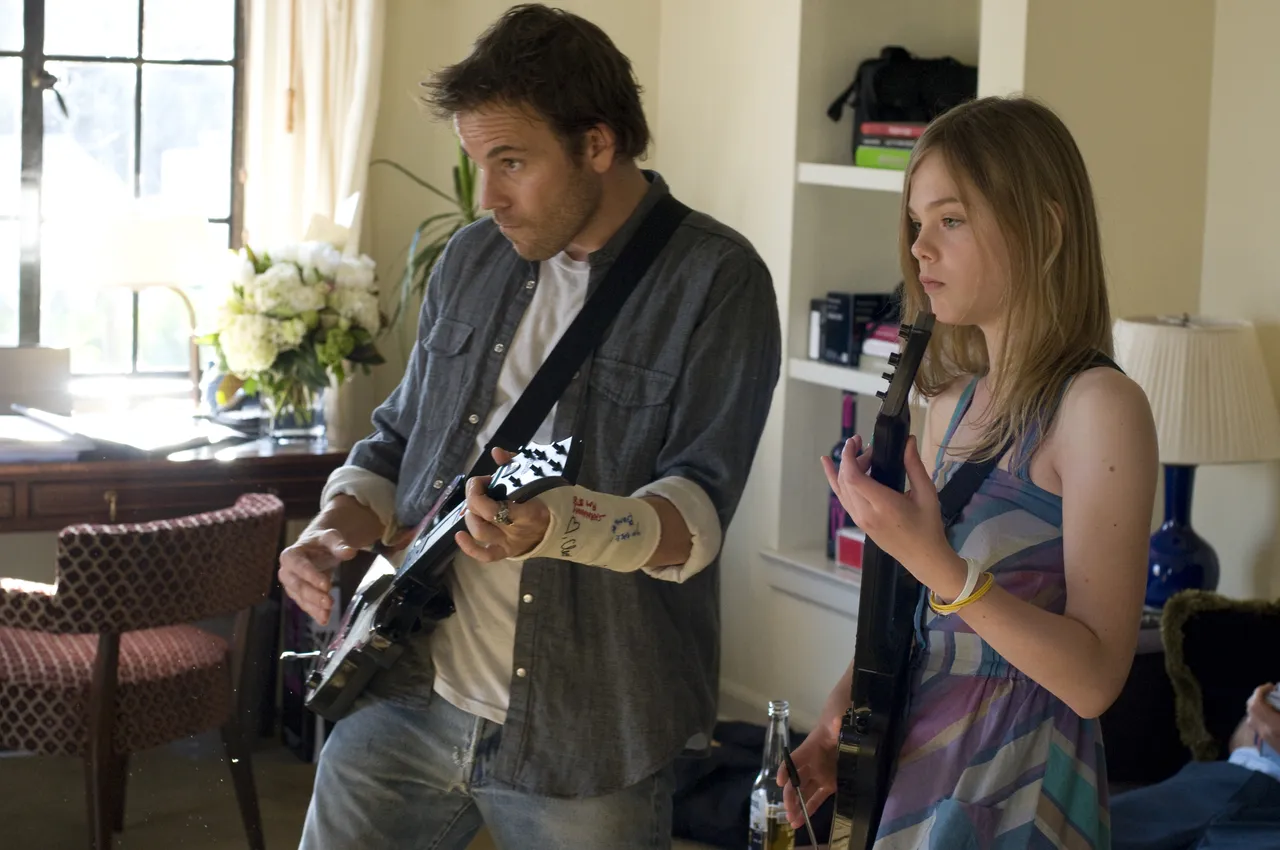With Lost in Translation easily taking the spot for favorite movie of the year (about twenty years too late, but still) for me, I decided to give Sofia Coppola's other movies a go, in the hope of rekindling some of that love-lost magic that's so present in the Bill Murray classic. While The Virgin Suicides was a sad disappointment, I found myself more and more entranced by 2010's Somewhere.
Coppola's Somewhere is the story of a 40-something actor who, despite tremendous levels of fame, has grown out of touch with life and what it truly means to enjoy it. Until, that is, his 11-year-old daughter is unceremoniously dropped on his doorstep, reminding him what he's doing it all for.

Photo:Universal Studios
While the film does play on something of a cliche -- in real life, we seldom, if ever, remember what it's all for in the nick of time -- Somewhere does manage to capture some of the magic that makes Lost in Translation unforgettable.
Some things you can't say
spoiler alert
But then again, the movie is 13 years old at this point, so chances are you've seen it or have no intention to. Anyway, there's this gorgeous scene towards the end of the movie where, dropping off his daughter for camp, the actor chats with her for a bit (she's in a taxi, him heading back to his helicopter), then leaves. It's only when he's by the helicopter that the actor turns back and shouts at his daughter, apologizing for never being there for her. It's a heartbreaking scene, less so in what is said, and more for the way he chooses to say it. It's only next to the helicopter, where the whirr of the engines swallows and drowns out his words, that the actor is brave enough to speak his truth to his disappointed daughter.
The little girl, Cleo (excellent portrayal by Elle Fanning), smiles delighted -- clearly without hearing him -- then waves goodbye. And it's that one scene, I think, which really saves the movie. Because we've all seen enough movies playing on this self-same cliche -- the distant father who realizes just in time that what's truly important is his family and comes back to them -- to be a little apprehensive, haven't we?
After all, how many stories do you know in real life that go like that?
So the theme is worn out enough to bring down the movie in and of itself. Yet that one scene at the end, where Johnny realizes he is, in his own words, nothing (and doesn't even have the courage to acknowledge it before his own daughter, manages to save the movie.
Because it doesn't leave you hoping for a happy-ever-after. There is, certainly, the promise of change. After all, the ending is marked by the actor leaving his celeb hotel, and his fancy car, and going off on his own two feet. A hopeful rebirth, of sorts.
But he's alone. Because while his young daughter does remind him what the larger purpose of his life is, he's still a long way from being a good father, or from fulfilling that purpose. Simply realizing what you're missing is not enough.
Hollywood movies have a way of forgetting that, and for many a protagonist, it's enough to say "oh, that was the true meaning" and everything falls into place. But not in Coppola movies. Here, the somewhere you're at in life is just that, a lay-over along the way. You may realize it or no, but you've still got a long way to go before the journey is completed. And I love that message. It beats telling people all they've gotta do is smile and adopt a can-do attitude about the things that are truly important.
Some messages find you when you need them.
I was reading reviews online for the movie, and I couldn't really fault any of the poor ones. Many bad reviews touching on valid issues - pointing out that while the same vibe as in Lost in Translation is present, the movie fails to take off. And that's true. After all, maybe Coppola's own take had lost some of its poignancy. Lost in Translation is, after all, a highly personal movie. It would be unfair to expect the same rawness ten years later in an artist's life.
For me, though, it came at just the right time, for I am at a place of reassessing my relationships. And so I couldn't help but fall in love with Johnny's journey. So what's fair? A bad review by someone who wasn't at a place to appreciate the movie, or a positive one by someone who, like me, found a great deal of themselves in Somewhere?
Ah, the difficulty of putting your art out there, and hoping it has a positive impact. Personally, I really enjoyed it. The lack of dialogue. The long, embarrassing shots. Stephen Dorff's wonderful acting. But hey, I don't know where you are at, in your journey :)
